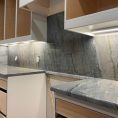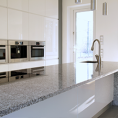Choosing the Right Countertop Thickness for Your Needs
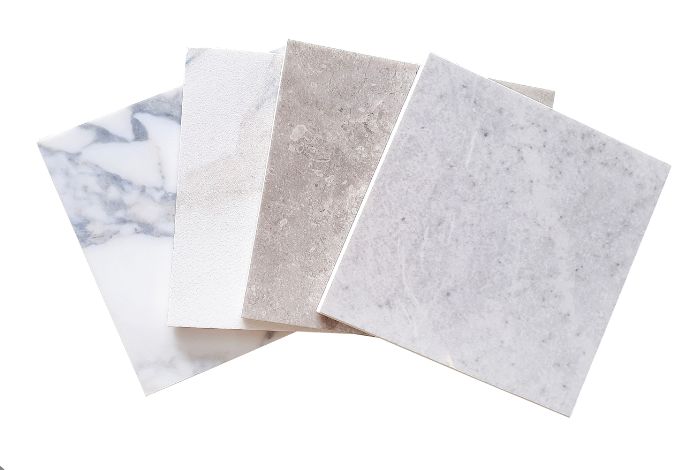
When selecting countertops for your kitchen or bathroom, one important consideration is the thickness of the material. Countertop thickness not only affects the overall aesthetic of your space but also impacts its functionality and durability. In this article, we will explore the different countertop thickness options available and provide guidance on how to choose the right one for your needs.
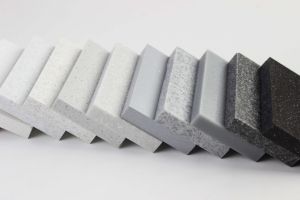
Countertop thickness not only affects the overall aesthetic of your space but also impacts its functionality and durability.
Standard Countertop Thickness Options
Countertops typically come in three standard thicknesses: 1.2 cm (1/2 inch), 2 cm (3/4 inch), and 3 cm (1 1/4 inches). Each thickness has its own benefits and is suitable for different applications.
1.2 cm (1/2 inch) Countertops
- Aesthetic Appeal: Thinner countertops offer a sleek and modern look, making them ideal for contemporary designs. They create a minimalist aesthetic that can make a space feel more open and airy.
- Lightweight: Due to their thinner profile, 1.2 cm countertops are lighter and easier to handle, which can reduce installation costs and time.
- Applications: These countertops are often used for vertical applications such as backsplashes and wall cladding. They can also be used for furniture tops and other areas where a thinner, lighter material is desired.
2 cm (3/4 inch) Countertops
- Versatility: 2 cm countertops offer a balance between aesthetics and durability. They are thicker than 1.2 cm countertops but still maintain a sleek appearance.
- Cost-Effective: Thinner than 3 cm countertops, they are often more affordable and still provide good durability and strength.
- Applications: Suitable for kitchen and bathroom countertops, as well as islands and other work surfaces. They can be installed with or without a laminated edge to create a thicker appearance.
3 cm (1 1/4 inch) Countertops
- Durability: 3 cm countertops are the thickest standard option, providing superior strength and durability. They are less likely to crack or break under heavy use.
- Aesthetic: Thicker countertops offer a more substantial and luxurious look, making them a popular choice for high-end kitchens and bathrooms.
- Applications: Ideal for kitchen countertops, bathroom vanities, and islands. They are also suitable for outdoor kitchens and other areas where durability is paramount.
Factors to Consider When Choosing Countertop Thickness
Design and Style
- Aesthetic Preferences: Your personal style and the overall design of your space will play a significant role in determining the right countertop thickness. Modern, minimalist designs often favor thinner countertops, while traditional or luxurious designs may benefit from the thicker, more substantial look of 3 cm countertops.
- Edge Profiles: The thickness of your countertop will affect the available edge profiles. Thicker countertops offer more options for decorative edges, such as ogee or beveled edges, while thinner countertops may be limited to simpler edge treatments.
Durability and Use
- Usage Requirements: Consider how you will use your countertops. If you frequently use heavy cookware or require a highly durable work surface, thicker countertops may be the better choice. For areas with lighter use, such as bathroom vanities or decorative surfaces, thinner countertops can be suitable.
- Support and Installation: Thicker countertops generally require less support and are easier to install without additional reinforcement. Thinner countertops may need extra support, particularly for overhangs and larger spans.
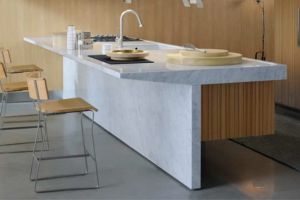
Your personal style and the overall design of your space will play a significant role in determining the right countertop thickness.
Cost and Budget
- Material Costs: Thicker countertops typically cost more due to the increased amount of material used. If budget is a concern, 2 cm countertops can offer a good balance between cost and durability.
- Installation Costs: Consider the cost of installation, as thicker countertops are heavier and may require more labor and reinforcement, potentially increasing the overall expense.
Custom Applications
- Backsplashes and Vertical Surfaces: For applications like backsplashes and wall cladding, thinner countertops are often preferred due to their lighter weight and easier installation.
- Furniture and Custom Pieces: Thinner countertops are also suitable for custom furniture pieces, such as tabletops and shelves, where a lighter weight is advantageous.
Choosing the right countertop thickness is essential for achieving the desired look and functionality of your kitchen or bathroom. By considering factors such as design preferences, durability requirements, and budget, you can select the perfect thickness to meet your needs. Whether you prefer the sleek appearance of 1.2 cm countertops, the versatility of 2 cm options, or the durability and luxury of 3 cm surfaces, the right choice will enhance the beauty and practicality of your space.




